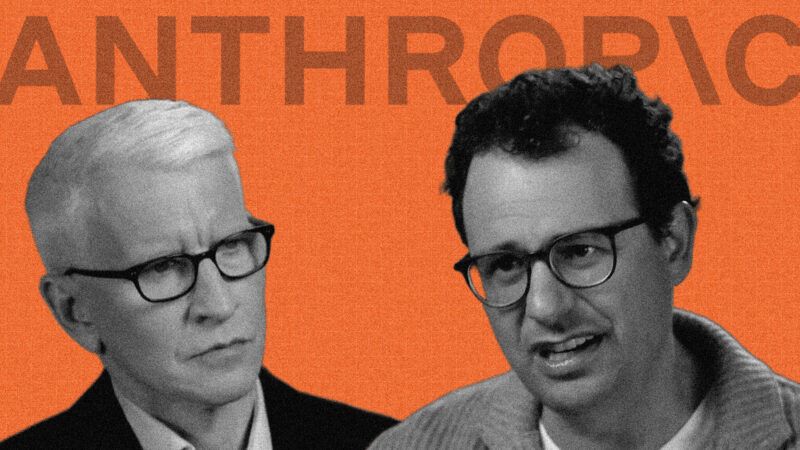Anthropic's CEO Says AI Needs More Regulation. Conveniently, It's the Kind Anthropic Can Afford.
Anthropic CEO Dario Amodei doubles down on AI doomerism during 60 Minutes interview with Anderson Cooper. Don't buy it.

For many industries, government regulation can be the death knell for success. For AI, more government involvement is necessary for the industry's long-term survival. At least, that's what Dario Amodei, the CEO of Anthropic, thinks. On Sunday, he reiterated his case for regulating the AI sector to Anderson Cooper on 60 Minutes.
Amodei told Cooper he's in favor of "responsible and thoughtful regulation of [AI]" because he's "deeply uncomfortable" with societal change being brought about by frontier AI companies. While Amodei's calls for government intervention sound altruistic, regulation would only benefit Anthropic and other highly capitalized incumbents, which can afford to clear regulatory hurdles that effectively close the market off to entrants who cannot.
This is not the first time that Amodei has said that the AI industry needs to be regulated. In June, he published an essay in The New York Times arguing against the House of Representatives' proposed 10-year moratorium on state- and municipal-level AI regulation. The moratorium was amended in the Senate before being removed entirely from the One Big Beautiful Bill Act at the 11th hour.
On Sunday, Amodei doubled down on his AI alarmism and stood by his prediction that "AI could wipe out half of all entry-level white-collar jobs and spike unemployment to 10 to 20% in the next one to five years." If this warning and others like it came true, it really would be disastrous; the last time unemployment was so high was during the Great Depression.
The future may be hard to predict, but there is very little evidence to suggest that Amodei's doomsday prediction is remotely likely. Quarterly job losses as a share of total employment have been decreasing steadily for 30 years. However, a recent Stanford University study found that 22- to 25-year-old workers in the most AI-exposed occupations, like software engineering and customer service, experienced a 6 percent decrease in employment from late 2022 to September 2025. While these numbers reflect disappointing job prospects for recent computer science graduates, they do not an AI job apocalypse make. Even if half of all entry-level white-collar jobs were eliminated over the course of five years, "the supposed AI job apocalypse…would be the equivalent of only about six weeks of normal labor-market churn," explains Robert Atkinson, the president of the Information Technology and Innovation Foundation.
The fears that Amodei has stoked are predicated on the lump of labor fallacy, which assumes that "there is a fixed amount of work to be done," a theory that has been empirically refuted. Art Carden, professor of economics at Samford University, explains that, "in the twentieth century, innovation, immigration, and international trade reduced the fraction of Americans working in agriculture from about 80 percent to about 2 percent." As a result, new industries emerged to channel the productive activity of men. The result: Real disposable income per capita increased ninefold from 1933 to 2024.
Cooper raised the point that "some people say…this is safety theater [and] good for business." Amodei equivocated, saying "we're not always gonna be right, but we're calling it as best we can." At present, Amodei appears to be calling it as best as he can to ensure Anthropic remains one of the most dominant firms in the AI industry.
